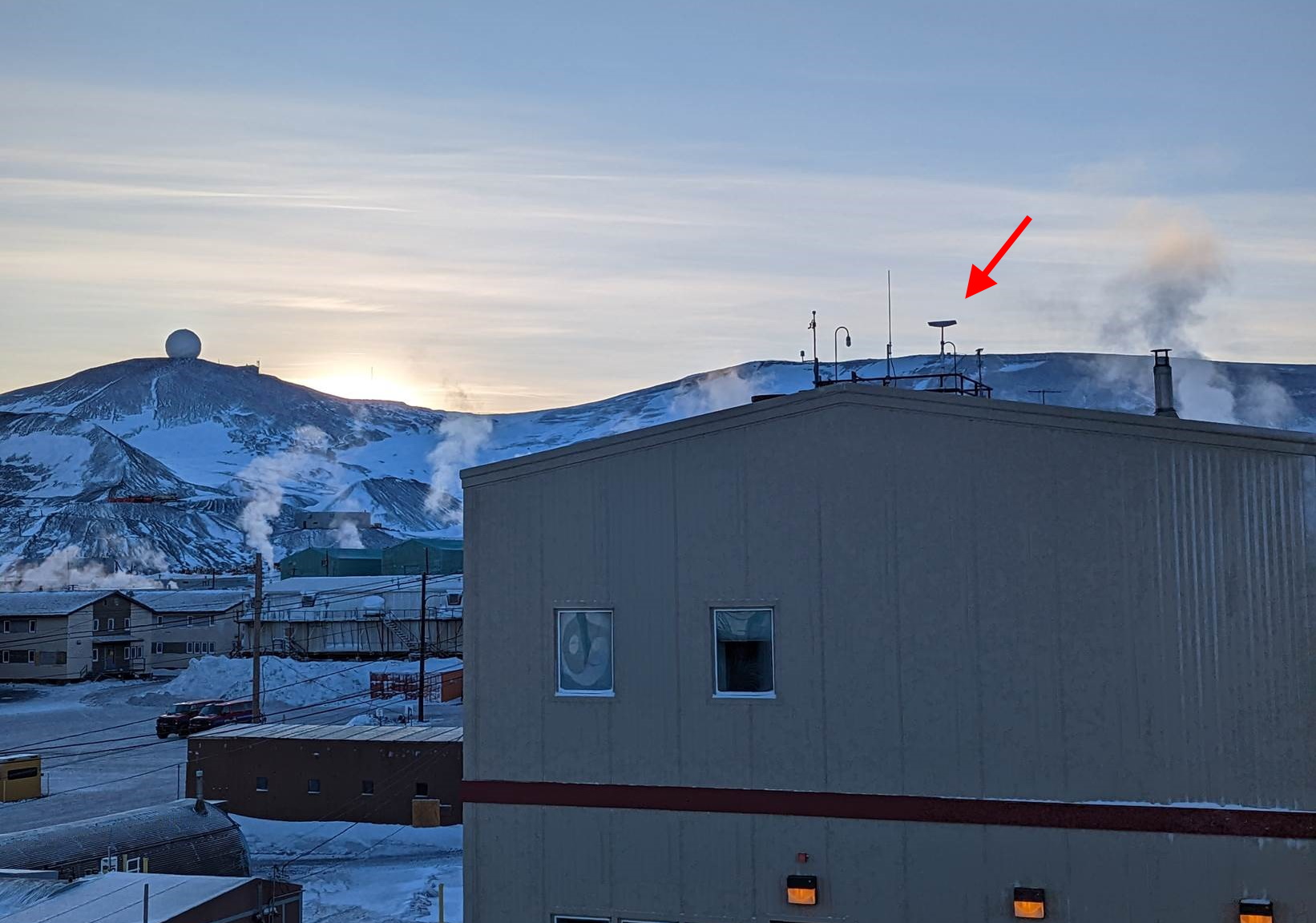Hello and welcome back to Max Q. In this issue:
- Morpheus Space’s big raise
- Starlink comes to… Antarctica!
- News from Firefly Aerospace, Spire and more
By the way…We are less than a month away from TechCrunch Disrupt, which is returning live and in-person to San Francisco on October 18-20. Use this link to receive 15% off passes (excluding online and expo).
Morpheus Space’s satellite thrusters are propelled forward with a $28M Series A
Morpheus Space, which produces a modular electric propulsion system for small satellites, has raised a $28 million Series A. The company aims to use the funds to build a manufacturing facility in Dresden, Germany, where it’s based, and to increase its staff size. That will enable the company to ramp up production of its Nano Field Effect Electric Propulsion (NanoFEEP) thruster, which it says is the “smallest and most efficient electric in-space propulsion system” in the world.
It’s a modular system, so multiple NanoFEEP thrusters can be used in combination to create more powerful propulsion systems for larger spacecraft. Since the company launched the product, it’s landed customers that include Rocket Factory Augsburg and Spire Global.
“The industry has seen significant growth in the last few years, unlike anything we’ve experienced before, and it has presented numerous opportunities for Morpheus to succeed and grow,” Morpheus Space CEO and co-founder, Daniel Bock, said in a statement. “However, we’ve also seen with our competitors how it presents multiple challenges and lost opportunities for those that cannot keep up. Both the blessings and problems associated with the space industry right now can be attributed to scalability.”
“To succeed, we need to rely on each other and help solve the problems of our partners to maintain growth. With this funding round, we will be able to produce high-quality hardware on a much larger scale that the industry needs and we look forward to how it will open doors for us and others in the future,” added co-founder and President István Lőrincz.

Four of Morpheus Space’s MultiFEEP thrusters. Image Credits: Morpheus Space
Starlink arrives in Antarctica
SpaceX’s Starlink satellite internet service is now potentially available on all seven continents, with the recent news that it has finally come to McMurdo Station on the Antarctic coast. The National Science Foundation said in a tweet, “NSF-supported USAP scientists in #Antarctica are over the moon! Starlink is testing polar service with a newly deployed user terminal at McMurdo Station, increasing bandwidth and connectivity for science support.” NSF funds the U.S. Antarctic Program at McMurdo and elsewhere.

Image Credits: NSF
More news from TC…
- Astrobotic has acquired Masten Space Systems after the latter company filed for bankruptcy protection at the end of July. The acquisition comes following a successful $4.5 million bid for Masten’s assets in a Delaware bankruptcy court earlier this month.
- Intuitive Machines will go public via a merger with a special purpose acquisition company, suggesting that the space SPAC craze is not quite over yet. The deal will give the combined company a value of around $815 million.
- Lynk landed approval from the U.S. Federal Communications Commission for its satellite-to-phone connectivity service, making it well-poised to beat SpaceX and Apple to the punch.
- Nanoracks and its parent Voyager Space successfully demonstrated metal cutting in space for the first time, a milestone that could be a boon for in-space construction and manufacturing.
- Rocket Lab conducted its 30th Electron launch, with a mission for Synspective to deliver one of their StriX synthetic aperture radar satellites to space. This is the second of a “bulk buy” of three Electron launches for the company. It also marks the 150th satellite Rocket Lab has sent to space!
…and beyond
- ABL Space Systems said it was finalizing its launch window with the U.S. Federal Aviation Administration (FAA), suggesting we are very near to the inaugural launch attempt of the RS1 rocket.
- AST SpaceMobile confirmed the successful launch of the BlueWalker 3 satellite into orbit. The company will use the satellite to conduct direct-to-cell connectivity testing on every continent inhabited by humans.
- Blue Origin’s 23rd launch of the New Shepard was aborted mid-flight due to an engine issue. No people were aboard, and the rocket’s capsule escape system successfully saved the scientific payload from destruction. The FAA is conducting an investigation into the anomaly. Congressional members of a space subcommittee released a public letter to the FAA “urging transparency.”
- Blue Origin is nearing the public debut of its BE-4 rocket engine, with the U.S. Space Force saying that the company “has successfully demonstrated full engine performance.”
- Firefly Aerospace has joined a cohort of 12 companies selected by NASA to provide launch services under the agency’s Venture-Class Acquisition of Dedicated and Rideshare missions. The maximum value of the contract is $300 million over a five-year ordering period.
- NASA is requesting proposals for two more private astronaut missions to the International Space Station, with launches likely taking place between 2023 and 2024.
- Sierra Space’s LIFE (Large Inflatable Flexible Environment) habitat successfully completed a key stress test related to the structure’s internal pressure.
- SpaceX’s Starlink service will be coming to enterprise and maritime customers through a new deal with Speedcast, a satellite service provider. Starlink may also be coming to Frontier Airlines, the carrier’s CEO told CNBC.
- SpaceX is appealing the FCC’s decision to exclude Starlink from the Rural Digital Opportunity Fund, which would’ve granted the company $885.5 million in support.
- Spire will launch three satellites for GHGSat starting next year. GHGSat currently operates six satellites equipped with instruments to measure carbon emissions from industrial sites around the world.
- Techstars LA announced the next cohort of space startups for its accelerator, which includes seven companies focused on everything from additive manufacturing to space stations and more.
- UAE has signed a Memorandum of Understanding with China for missions to the moon, marking the first space-related agreement between the two countries.
- Vast Space, a startup founded by billionaire Jed McCaleb, launched this past week, with the aim of building an artificial-gravity space station in low Earth orbit.
Max Q is brought to you by me, Aria Alamalhodaei. If you enjoy reading Max Q, consider forwarding it to a friend.
